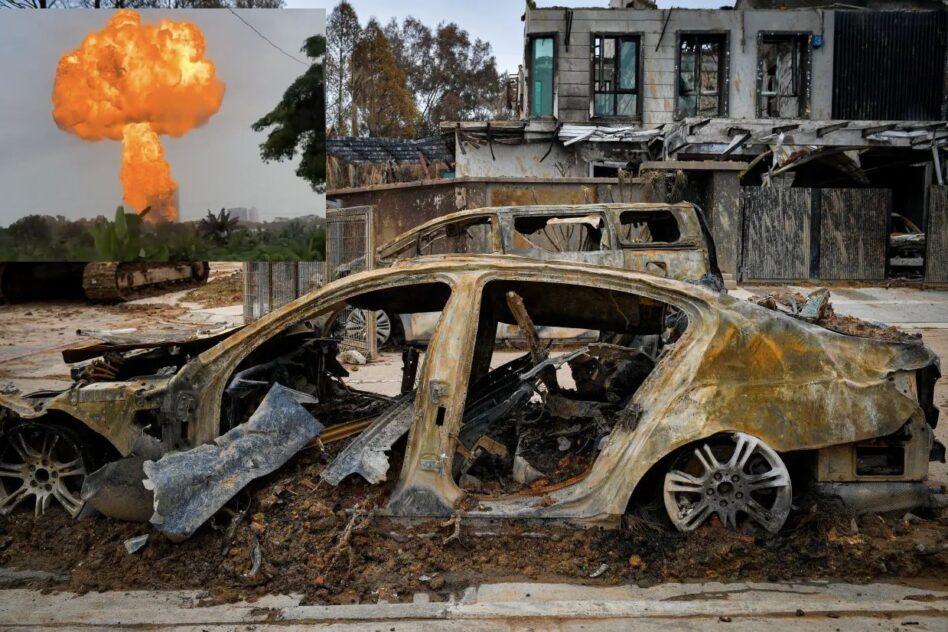Letter to Editor
DONALD Trump’s assertion that climate change is a “hoax” reflects a broader challenge faced by scientists and climate advocates.
How to convince skeptics, particularly policymakers and politicians, of the urgency and reality of climate change?
To bridge this gap, scientists need to employ strategic communication, build trust, and address the underlying reasons for skepticism.
There are ways scientists can better convince lawmakers and politicians about climate change.
Politicians are more likely to respond to climate change when they understand its direct impact on their constituents.
Scientists should emphasise how climate change affects local economies, infrastructure, and public health.
Good to highlight real-world examples, such as extreme weather events, rising sea levels, or agricultural losses, to make the science more tangible and relevant.
Framing climate change as an economic opportunity can also work.
Emphasise how transitioning to renewable energy and green technologies can create jobs and stimulate economic growth.
They can talk about the long-term cost savings of investing in climate resilience and renewable energy compared to the economic damage caused by inaction.
Also they should stress the importance of staying competitive in the global market by leading in clean energy innovation.
Scientists must build trust and credibility. They should actively participate in hearings, briefings, and workshops to share their expertise and answer questions.
Either that or they partner with respected figures, such as military leaders, business executives, or religious leaders, who can communicate the importance of climate action to skeptical audiences.
Also, experts can clearly explain the scientific process, including uncertainties, to demonstrate the rigor and reliability of climate science.
Use simple, non-technical language to explain complex concepts. Employ graphs, maps, and infographics to make data more understandable and compelling.
Use narratives and case studies to illustrate the human and environmental impacts of climate change.
Proactively address common misconceptions about climate change, such as the idea that it is a natural cycle or that scientists are divided on the issue.
Emphasise the overwhelming scientific consensus on climate change (eg: 97% of climate scientists agree that human activities are driving climate change).
Work with fact-checkers and media outlets to correct false claims and provide accurate information.
Showcase examples of bipartisan efforts to address climate change, such as renewable energy projects or conservation programs.
Frame climate action in terms of values that resonate across the political spectrum, such as national security, public health, and economic prosperity.
Emphasise how reducing greenhouse gas emissions can improve air quality and reduce respiratory illnesses.
Highlight how renewable energy can reduce dependence on foreign oil and enhance national security.
Stress the importance of investing in climate resilience to protect communities from extreme weather events.
Engaging the public is key. Encourage citizens to advocate for climate action by contacting their representatives and participating in public demonstrations.
Work with schools and universities to integrate climate science into curricula, fostering a more informed and engaged future electorate.
Highlight how major companies are committing to sustainability and reducing their carbon footprints.
Partner with businesses to demonstrate the economic viability of climate-friendly policies and technologies.
Showcase examples of successful climate initiatives, such as cities transitioning to renewable energy or countries meeting emissions targets.
Offer actionable policy recommendations that are feasible and politically viable.
Recognise the economic and cultural concerns of skeptics, such as the impact on fossil fuel industries or rural communities.
Propose strategies to support workers and communities affected by the shift to a low-carbon economy.
Highlight the role of international agreements, such as the Paris Agreement, in driving collective action on climate change.
Emphasise the risk of falling behind other countries that are investing heavily in clean energy and climate resilience.
Convincing lawmakers and politicians about the reality of climate change requires a multifaceted approach that combines clear communication, trust-building, and strategic framing.
By focusing on local impacts, economic opportunities, and bipartisan solutions, scientists can make a compelling case for climate action.
Additionally, addressing misinformation and engaging the public are critical to creating a groundswell of support that pressures policymakers to act.
Ultimately, the goal is to shift the narrative from skepticism to collaboration, ensuring that climate science informs policy decisions for the benefit of current and future generations. —Mar 30, 2025
Professor Dato Dr Ahmad Ibrahim is an Associate Fellow at the Ungku Aziz Centre for Development Studies, Universiti Malaya.
The views expressed are solely of the author and do not necessarily reflect those of Focus Malaysia.
Main image: CABI









